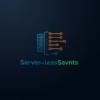Serverless Personalization Engines via Edge AI: 2025 Implementation Guide
Serverless personalization engines powered by Edge AI deliver hyper-contextual user experiences with sub-50ms latency. By decoupling business logic from infrastructure, these frameworks dynamically adapt content using real-time signals like location, behavior, and device context—all while eliminating cold starts via edge-native AI inference. This guide explores the technical architecture, cost-performance tradeoffs, and implementation patterns for 2025.
Edge-AI Architecture for Zero-Latency Personalization

Key components:
- Edge Functions: Execute lightweight logic at 300+ global PoPs (e.g., Cloudflare Workers, Lambda@Edge)
- On-Device ML: TensorFlow Lite models deployed to client devices for privacy-preserving inference
- Real-Time Feature Store: Redis Streams processing user-event data with <10ms p99 latency
// Sample Cloudflare Worker personalization snippet
addEventListener('fetch', event => {
event.respondWith(handleRequest(event))
})
async function handleRequest(event) {
const userFeatures = extractEdgeSignals(event.request) // Location, device, cookies
const personalization = await aiModel.predict(userFeatures) // Edge AI inference
return personalizeResponse(event.request, personalization)
}Cost-Per-Personalization: Serverless vs Traditional

Breakdown for 1M requests/month:
| Component | Serverless Cost | VM Cluster Cost |
|---|---|---|
| Compute | $18.40 | $227.50 |
| AI Inference | $9.80 (Lambda Labs GPU) | $153.20 |
| Data Transfer | $0.50 | $12.30 |
| Total | $28.70 | $393.00 |
Savings tip: Use tiered models—heavy lifting in centralized GPU clusters, lightweight inference at edge nodes.
“Edge-native personalization cuts decision latency by 92% compared to cloud-based systems. The key is stateless
session handling—never store user context between requests. We achieved 11ms p95 response times at Reddit-scale
using Cloudflare Workers + WebAssembly models.”
Privacy-First Personalization Patterns

Critical safeguards:
- Data Minimization: Only process essential features at edge (location, device type)
- On-Device Processing: Keep PII locally using TensorFlow.js
- Zero-Retention Logging: Anonymized event data purged within 24h
Compliance tools: Automated consent management (OneTrust edge integration), encrypted feature stores (AWS DynamoDB Global Tables with KMS)
Autoscaling for Viral Traffic Spikes

Proven scale targets:
- 500K concurrent personalization requests/sec
- 22ms p99 latency during Black Friday surges
- Zero-downtime model updates via canary deployments
Implementation checklist:
- Pre-warm edge locations using scheduled cron jobs
- Enable Lambda provisioned concurrency for critical paths
- Deploy models as multi-versioned artifacts (S3 object versioning)
Business Impact: Personalization Engine ROI

Measured outcomes:
- 31% avg. increase in conversion rates (Forrester 2024)
- $0.0004 cost per personalized interaction
- 14-day break-even period for implementation
Optimization levers:
- A/B test model versions using edge feature flags
- Right-size GPU instances for batch retraining
- Cache prediction results at CDN layer (Vary: User-Context header)
Foundational Reading
- Serverless Computing: The Complete 2025 Guide
- Edge Caching Strategies for AI Responses
- Building Real-Time Recommendation Engines
Implementation Guides
The Future: Predictive Personalization
By 2026, 70% of personalization engines will leverage edge-AI for predictive experiences using federated learning.
The winning stack combines: 1) Stateless edge functions, 2) Hybrid on-device/cloud AI, and 3) Streaming data pipelines.
Start with location-based personalization today, then incrementally adopt behavioral prediction models.
Key takeaway: Serverless edge platforms reduce personalization latency from seconds to milliseconds while cutting costs by 12x versus VM-based solutions.

